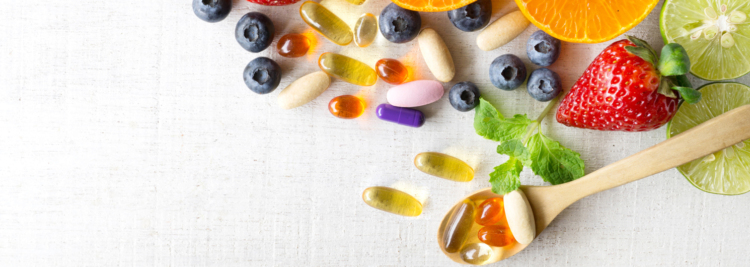Alcohol and medication: major risks to consider
You’ve certainly heard this before… It isn’t the best idea to take your medication with a swig of wine, whisky or cognac! Let’s explore the reasons why not.
Alcohol can amplify the side effects of several medications, such as codeine and morphine, sleeping pills, antidepressants, anxiolytics (used to soothe anxiety or to promote sleep) and antihistamines (often taken to relieve allergy symptoms). If you combine any of these medicines with alcohol, you risk suffering from further drowsiness, dizziness or even vision problems.
Certain medications (such as glyburide and ketoconazole) and antibiotics (like metronidazole) may slow the breakdown of alcohol by the body. When this occurs, the effects of alcohol are magnified (drowsiness, difficulty concentrating, dizziness, etc.).
Other medicinal products could be poorly absorbed by the body when taken at the same time as alcohol. Consequently, your medication won’t work as it should.
Even if your medication doesn’t warn against consuming alcohol during its intake, it is nevertheless recommended that you drink only in moderation.
The impact of certain minerals and vitamins
Calcium, present in dairy products and certain milk alternatives and enriched juices, may be contraindicated when taking medication. For example, certain drugs used to treat osteoporosis (such as alendronate and risedronate) aren’t recommended if a person is ingesting calcium, as this could prevent the treatment from having its desired effect. People are usually advised to avoid calcium-rich foods and drinks for about 1 hour before and 2 hours after taking their medication.
Because vitamin K contributes to blood coagulation, if you’re taking an anticoagulant (such as warfarin) at the same time, its effects will decrease. That’s why people who are on this medication must maintain their intake of foods that are rich in vitamin K (like cabbage, spinach and turnips). Any sudden or significant increase or decrease in the intake of these foods isn’t recommended.
Other medications sometimes cause a lack of potassium in the body. In such cases, it’s important to consume more potassium-rich foods like bananas, oranges and green vegetables.
Beware of caffeine!
The caffeine found in coffee, energy drinks and soft drinks can cause adverse interactions when ingested in conjunction with your medication. For example, if you’re taking medicine to treat your osteoporosis (such as alendronate or risedronate), caffeine can prevent your body from properly absorbing the medication. Ideally, these medicines should be taken 30 minutes before breakfast, including coffee. And seeing as caffeine has a tendency of irritating the stomach, it isn’t recommended while taking medications that can also irritate the stomach.
Other drugs (like fluvoxamine and ciprofloxacin) amplify the effects of caffeine, thus causing heart palpitations, tremors and perspiration. Inversely, caffeine can also amplify the effects of several medications, including antipsychotics.
The grapefruit… A culprit?
Although it may seem surprising, citrus fruits, such as grapefruits, pomelos, limes and bitter oranges are proscribed in combination with several medications. As these foods make it difficult for the body to break down certain medicines (such as statins, antihypertensives, anti-anginal drugs and immunosuppressants), the effects of said medicines may be amplified.
Considering that the effects of the grapefruit and its cousins on the liver last several days, the safest route is to stop eating them entirely while taking the medications in question.
In conclusion
In a word, it’s important to remember that some foods and drinks can have adverse interactions when consumed while taking medication. It is very risky to consume alcohol while taking medicines. Foods that are rich in calcium, vitamin K and potassium can also be at the root of adverse interactions with your medication. Coffee and other drinks containing caffeine must be consumed in moderation in conjunction with several drugs.
And remember, eating citrus such as grapefruits, pomelos, limes and bitter oranges can also pose significant risks when taking certain medications. The effects of grapefruits on the body last so long that it’s best to avoid them entirely when taking medicines that contraindicate them.
When it comes to better understanding the possible interactions between food and medication, your pharmacist affiliated to Accès pharma is the best guide you could have. Contact them today.





